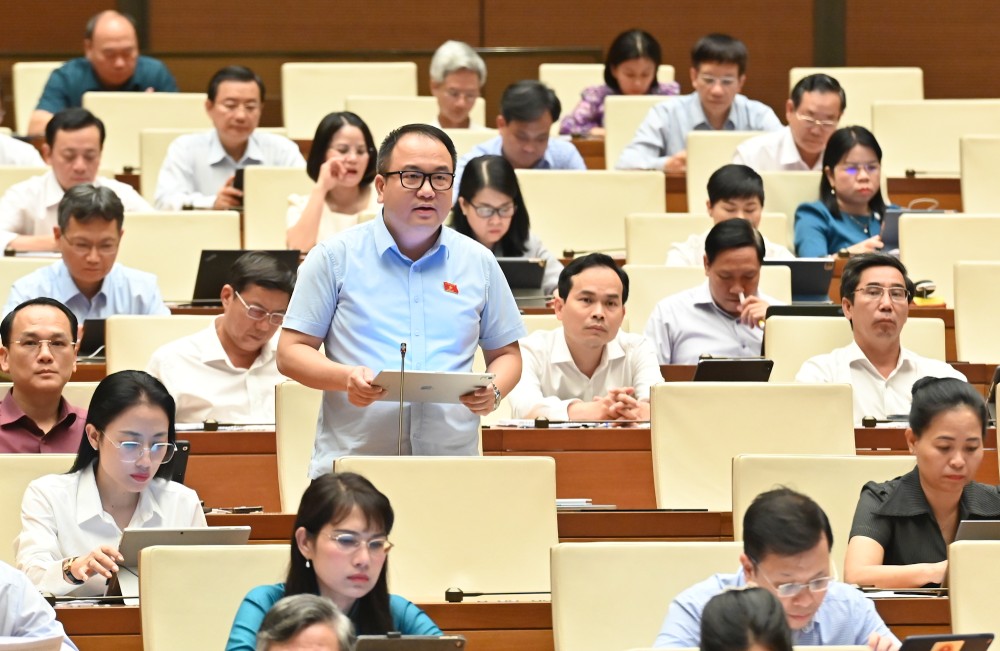On the afternoon of May 13, the National Assembly discussed in the hall the draft Law on Science, Technology and Innovation. One of the notable contents is the regulation on risk acceptance in science, technology and innovation.
Delegate Nguyen Danh Tu (Kien Giang Delegation) expressed his opinion on the principle of excluding responsibility in testing activities.
The draft law stipulates the exclusion of responsibilities of two groups of entities: competent authorities allowing testing, organizations, individuals directly appraising, licensing, controlling, evaluating, testing and licensed organizations and enterprises.
The delegate said that according to the provisions of the draft law, these entities are not subject to civil liability, are not subject to administrative sanctions, and are not subject to criminal liability in cases as prescribed.
Thus, according to the draft law, there are types of responsibilities excluded as civil, administrative and criminal responsibilities.
I see that there are 4 types of responsibilities in the legal system, in addition to the 3 types of legal responsibilities mentioned above, there is another type of legal responsibility, which is disciplinary responsibility.
The failure to regulate the consideration of disciplinary action against the two groups of subjects mentioned above leads to these topics implementing correctly and fully the regulations on testing according to regulations, but when damage occurs, disciplinary action may still be considered, the delegate analyzed.
Therefore, the delegate suggested that it is necessary to study and supplement the draft law to eliminate disciplinary responsibility for the two groups of subjects mentioned above when they have properly and fully implemented the experimental regulations, and fully apply appropriate measures to prevent and limit the level of damage that may occur.

Delegate Pham Trong Nghia (Lang Son Delegation) also emphasized that the criteria for selecting a pilot project are extremely important, and must be clearly defined in the law.
Therefore, it is recommended to add criteria for selecting experimental projects such as high innovation, application of technology in priority areas such as digital technology, or green technology.
According to the delegate, Point c, Clause 1, Article 21 of the draft law stipulates criminal liability exemption; Point c, Clause 2 of this Article allows the use of civil liability instead of criminal liability for organizations and enterprises. However, the draft does not have specific regulations on criteria and authority to decide on exemptions.
Therefore, it is recommended to add; at the same time, amend corresponding regulations in the Penal Code to encourage legal innovation on the one hand, on the other hand, not to let criminals go unnoticed and avoid widespread testing, causing harm to society.
The delegate also added about the principles of innovation in policy and law making. International experience shows that the principle of innovation is a strong and effective tool to build a legal environment to support innovation.
Propose to study and supplement regulations requiring the assessment of the impact of policy proposals and draft legal documents on the innovation capacity of enterprises and society.







